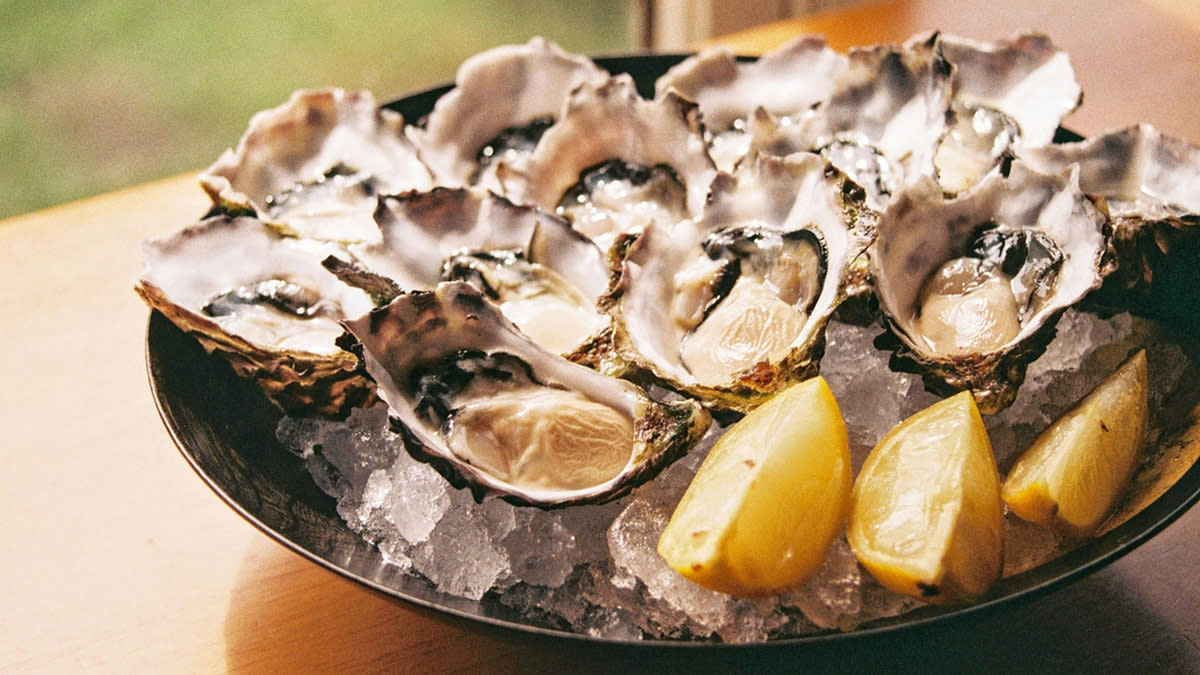L.A. Diners Are Avoiding Oysters After Mixed Warnings From Public Health Officials

Diners in Los Angeles are feeling a bit squeamish around oysters at the moment.
After the bivalve was linked to dozens of norovirus cases in L.A. County, many have decided to stay away from raw oysters, Eater L.A. reported on Thursday. That’s hurting seafood distributors and restaurants alike, with many saying that communications from government agencies have only muddied the waters.
More from Robb Report
'Transformers: Rise of the Beasts' Director Lands an Upgraded L.A. House
Golf Superstar Michelle Wie West's Modern L.A. Farmhouse Hits the Market for $6.5 Million
A Wellness Guru Goes the Extra Mile to Sell Her Zen L.A. House
“San Diego and Los Angeles County health departments put out a very generalized statement saying the [problem] is currently under investigation and made broad recommendations that you shouldn’t eat Mexican oysters or sell them,” Todd Rubenstein, the CEO of Naked Cowboy Oysters, told Eater. “This didn’t do anything but hurt businesses. Our sales dropped by more than 50 percent.”
The problem started in late 2023, when oysters harvested in certain parts of Mexico were connected to norovirus cases popping up in the L.A. area. The infected oysters are linked to farms in the Gulf of California, the Baja Peninsula, Sonora, and other Mexican locations. But that specificity hasn’t always been communicated to diners or even sellers of oysters more generally.
While the press release from the health department pointed out that the oysters from certain parts of Mexico were the culprit, subsequent public statements from officials felt like more of a blanket statement. “People who are immunocompromised or older adults, specifically, should be avoiding raw oysters at this time,” said Dr. Lello Tesema of the L.A. County Department of Health.
For example, Dom Crisp of the Lonely Oyster told Eater that he recently catered an event at the iconic Chateau Marmont, serving Cadillac oysters from Maine. While attendees would typically go in on the bivalves, everyone stayed away from them this time. And as Rubenstein noted, orders have declined precipitously, even among those who don’t typically buy Mexican oysters.
“I had long-term customers of mine who called me and canceled standing orders I’ve had for 12 years,” he said. “Musso & Frank stopped ordering oysters and said they are going to stop selling oysters. Here’s the funny thing, they never use Baja oysters, they use oysters from Prince Edward Island in Canada.” (The CFO and CEO of Musso & Frank told Eater in an email that the restaurant stopped selling oysters weeks ago “out of an abundance of caution.”)
While it may be a good idea to stay away from some Mexican-sourced oysters right now, those farmed in the United States are generally still safe to eat (although eating raw seafood always carries some risk). Restaurants and wholesalers recommend chatting with them about where their oysters come from, so you can make informed decisions and stay safe. Thankfully, you don’t have to give up the delicacy altogether.
Best of Robb Report
Why a Heritage Turkey Is the Best Thanksgiving Bird—and How to Get One
The 10 Best Wines to Pair With Steak, From Cabernet to Malbec
Sign up for Robb Report's Newsletter. For the latest news, follow us on Facebook, Twitter, and Instagram.

 Yahoo Lifestyle
Yahoo Lifestyle 
